As I write this, the air outside is tinged with a smokey fog that smells like a campfire here in Seattle, where there shouldn't be campfires. Yesterday the sky was tinged orange, although it's slightly improved today. Our air quality is still considered unhealthy.
This is not the Pacific Northwest of my youth or even young adulthood. Big fires happened sometimes, but absolutely nothing on the scale of the last few years and this past week.
Most of us here are grieving for the loss of lives, homes, and many special wild places. Right now one of my favorite trails is burning; some of our last remaining old growth forests and wilderness areas have burned.
Turns out there's a word for what I'm (we're) feeling: “solastalgia.”
Coined by Australian environmental philosopher Glenn Albrecht, solastalgia is “manifest in an attack on one’s sense of place, in the erosion of the sense of belonging (identity) to a particular place and a feeling of distress (psychological desolation) about its transformation.” In other words, it's “a form of homesickness one gets when one is still at ‘home.’”
This term came about from distressed people who had remained in place, even as the landscape that had once brought them solace became unrecognizable. It’s a word that has started to be used in the context of climate change.
Before I read the article in the L.A. Times about solastalgia, I was basically trying to come up with words to convey this feeling, which has been exacerbated by the fire maelstroms here in the Pacific Northwest this past week.
Some of of my most treasured places, such as trails through lush forests carpeted with moss and ferns, have burned or are burning. I read that western red cedar will eventually become a victim of changing climate. I can't imagine a world without these magnificent cedars in our forests, where I feel the most at peace in the world.
As quoted in the L.A. Times article, “We have relationships to places,” says Dr. Susan Clayton, a professor of psychology and environmental studies at the College of Wooster in Ohio. “They’re very significant to our history and our sense of who we are.”
I was nurtured and shaped in ways I didn't recognize until midlife by woodlands thick with western red cedar. I can't explain clearly the visceral way I'm drawn to these trees.
So here I'm posting shots of places that might have burned (like Silver Falls State Park east of Salem, Oregon, where we're still waiting to hear the extent of fire damage). But I also hope to convey a sense of a changing region, and what's being lost.
Our forests westward of the Cascade Mountains crest are temperate rainforests, which are home to one of the highest levels of biomass on Earth. They harbor a richness of life that needs a good dousing of rain off and on, even in the summer, to thrive. Instead the trend is higher temperatures and longer, drier periods that allow the underbrush to dry out and serve as fuel for fires.
Granted, it's not just a changing climate that is contributing to our increasingly record-breaking fires. Historically there were burns, but it was part of the natural regime. Fire suppression and profit-driven forest practices in the last century have played a role in exacerbating bigger and more extensive fires.
Happy trails and thanks for visiting Pacific Northwest Seasons!
In between blog posts, visit Pacific NW Seasons on FaceBook, Twitter, and Instagram for more Northwest photos and outdoors news.

















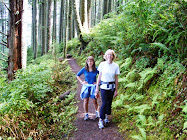

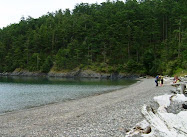
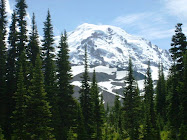



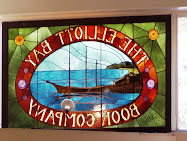
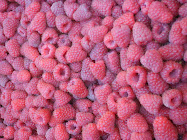

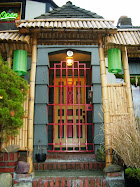


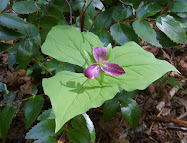

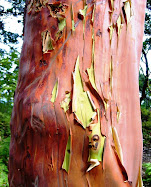

8 comments:
According to the news on tv we will have some rain falling soon and they said it actually rained in Seattle this morning but it sounds like if you blinked you would have missed it. I feel so bad for the people in lovely Oregon, we are really lucky that our damage has not been nearly as extensive. Our Northwest rarely has severe weather except for the one hurricane that arrived in Oregon in the early '60s which was very scary, we all huddled in the basement till it passed.
Hi Anne, thanks for your comment. Yea, a bit of rain last night. I was hearing the foghorns this morning. And the damage in Oregon, awful.
I too am experiencing a sense of desolation as the world changes around me, with huge loss in our natural and social environments. I have been able to do some hiking this summer, but noticed that more and more, I am hiking in landscapes that have burned or are recovering from burn. A trip home from Mt. Hood last Monday came to an abrupt halt as what seemed to be the entire Palouse took to the air and headed south in a "rare" wind/dust storm. Seems like little remains untouched. I am also noticing that our policies are not keeping pace with the need to change how and when we do things--log, plow, plant etc. Yet our survival may depend on our ability to be nimble, adapt, change. I wish I could be more hopeful. Today is not one when I can feel that.
NAM, thank you for your thoughtful and articulate comment. Agree with your statement on policies and the need to change and adapt. Yes some days hope is harder to come by. Take good care.
Well a bright spot for me! I am part of a volunteer crew that regularly samples beaches to document Surf Smelt spawning data. Surf smelt spawn in large schools at high tide lines on beaches with sand and smaller gravel. Thousands of eggs. The eggs are off-and-on exposed for about 2 weeks before they hatch and become free swimming fish that then go out with the next tide. If it is hot and sunny the eggs cook fast and die when the tides go out - and up this way that happens a lot because they are prolific summer spawners mostly. But the past week and next few days may make for bumper crop of little babies!!
Rabbit's Guy, I hope there's a bumper crop of surf smelt! We'll take the good news wherever we can get it.
And then there's the wildlife lost. I'm thinking resilience the way to go. Nice writing, Jill.
Thanks Ron. Yes the wildlife... :( and native plants, insects, fungi, etc. Sigh. Here's to resilience!
Post a Comment